- Hon Ministers
- Directors General
- President, Network of African Science Academies (NASAC)
- President, West African Network of National Academies of Sciences (WANNAS)
- Presidents of National Academies in Nigeria and Africa
- Fellows of the Nigerian Academy of Science (NAS)
- Distinguished invitees
- Ladies and gentlemen of the press
- Distinguished ladies and gentlemen
On behalf of Council and Fellows, I welcome you to the 6th Annual Science Conference of the Nigerian Academy of Science. For the benefit of those who are attending our Academy event for the first time, let me tell you a bit about our Academy. The Nigerian Academy of Science (NAS), established in 1977, is the foremost independent scientific body in Nigeria. The NAS is uniquely positioned to bring scientific knowledge to bear on the policies/strategic direction of the country and is also dedicated to the development and advancement of science, technology, and innovation (STI) in Nigeria. The Nigerian Academy of Science is a non-for-profit organization of Fellows who are scientists who have distinguished themselves in their fields both locally and internationally in all fields of science including medicine and engineering.
The Nigerian Academy of Science is Nigeria’s national representative on such bodies as the
- International Science Council (ISC)
- Inter-Academy Partnership (IAP)
- Network of African Science Academies (NASAC)
- West African Network of National Academies of Science (WANNAS), formation of which was facilitated by ECOWAS
- The Academy has also served on the Bureau of African Scientific, Research and Innovation Council (ASRIC) of the African Union and participates actively in ASRIC activities.
Since inception, NAS has been working smart to achieve the vision of an improved quality of life for the Nigerian society through the promotion and application of sound science and technology. This is done through the mission of strengthening the nation’s ability to deliver the fruits of science to society by the acquisition, growth, and dissemination of sound scientific knowledge and the facilitation of its use in solving major national problems.
Specifically, the mandate of NAS is to assist government and stakeholders in addressing major national problems that can be solved by the application of science, technology and innovation.
The academy does this by
- Providing advice on specific problems, of a scientific or technological nature, presented to it by the government and its agencies, as well as private organizations
- Bringing to the attention of government, its agencies, and stakeholders, problems of national interest that science and technology can help solve .
- Establishing and maintaining the highest standards of scientific endeavours and achievements in Nigeria, through the publication of journals, organization of conferences, seminars, workshops, and symposia, recognition of outstanding contributions to science in Nigeria, and the development of a working relationship with other national and international scientific bodies and academies.
This conference is one of the activities NAS conducts annually. The theme of this conference Climate Adaptation and Resilience in Nigeria is apt at this time when climate change is on the top burner. We are all aware that climate change is one of the most threatening problems the world is facing today. It is so important that Sustainable Development Goals SDG 13 addresses it directly. SDG 13 requires that by 2030, urgent action would have been taken to combat climate change and its impact. Eight other SDGs, 1, 2, 4, 5, 6, 7, 11, 13, 14 and 15 address climate change indirectly.
The subthemes for this conference address comprehensively the impact of climate change
Effects of urban renewal on climate change
Climate change and water resources management
• Effects of climate change on agriculture and food security
• Effects of climate change on human and animal health
• Climate change and energy
• Climate resilient infrastructure
• Climate change and technology application
• Gender and intersectionality dimensions of climate change
We are glad that our conferences also foster mentoring and net-working which are key in capacity building. We are glad that some of papers presented at our conferences get published for wider dissemination in our highly rated Academy Journal, Proceedings of the Nigerian Academy of Science, the official journal of the Nigerian Academy of Science.
Two achievements by the Nigerian Academy of science will interest this gathering.
First is that on March 6, 2024, our Academy conducted the investiture of the President of the Federal Republic of Nigeria, His Excellency, Bola Ahmed Tinubu as GRAND PATRON OF SCIENCE IN NIGERIA…. a patron who will drive the use of science as mainstay for national development. Mr President directed Ministers and heads of agencies present at the investiture to speed up the establishment of a National Research Foundation and Fund. This is applaudable as it will go a long way to drive research and development in our dear nation.
Second is that, yesterday, the Nigerian Academy of Science recorded another milestone…the commissioning of the NAS -TY Danjuma Museum/Library complex on the land, in Wasa District, allocated to the academy by government. When fully developed, the land will have a museum/ library, conference centre, guest house and administrative block on it. The museum/library complex was completed within one year.
When fully fitted, the museum which was completed within one year, will serve as a useful resource for inspiring and strengthening Science, Technology, Engineering, Arts and Mathematics (STEAM) education. It will showcase Nigeria’s rich cultural heritage and civilization that can produce cross cultural understanding. It will be a source of knowledge and inspiration. Management of the museum will continue to collect, preserve, interpret and display objects of artistic, cultural and scientific significance for the education of the public, particularly students.
It is expected that an exhibition on climate change will be featured permanently in the museum. Climate change is one of the most threatening problems the world is facing today. It is so important that Sustainable Development Goals SDG 13 addresses it directly. SDG 13 requires that by 2030, urgent action would have been taken to combat climate change and its impact. Eight other SDGs,1,2,4,5,6,7,11,13,14 and 15 address climate change indirectly.
It is sad that climate change has not received adequate attention in most countries. There is, therefore, a need for the public to be convinced enough to actively get involved in climate change mitigation and adaptation activities and be trailblazers in making our earth safe for future generations. Our museum will provide comprehensive information needed for such action. The library, when fully fitted, will provide access to authentic and reliable information required to support learning and development. It will house all sections in an ideal library, including an e- section and a repository. The entire compound, the Headquarters of the Nigerian Academy of Science, when all four structures are completed, will be a conducive environment for researchers to work in. It will also be a good venue for conferences and meetings.
Our belief that sustainable national development can only be possible if all stakeholders participate effectively makes it mandatory for us to continue to bring together the academia, the private sector, Government, civil society and other stakeholders for conversations on how obstacles to sustainable national development can be removed. We believe that research should be for development. Research should feed policy and practice and there should be optimal uptake of research outcomes by industry.
I thank all present here today for honouring our invitation. These include our partners who are here to give us goodwill messages, the keynote speaker, chairmen of sessions, lead presenters, presenters and exhibitors.
I must commend the immediate past President of the Nigerian Academy of Science, Professor Mosto Onuoha, and the Council at that time, for initiating the conduct of NAS Annual Science Conference. I commend the chairman, Prof Friday Okonofua and members of the NAS Science Conference Committee as well as NAS Executive Secretary, Dr Doyin Odubanjo, and his team at the Secretariat for successfully pulling through this conference. I appreciate the consistent support of the present NAS Council and Fellows of the Academy.
I must specially thank Prof Alexander Acholonu FAS who not only consistently travels to Nigeria to attend all our meetings but has made significant donations to Academy, one of which is the endowment he has made in perpetuity to service prizes for the best oral presentation and best poster presentation at the NAS Annual conferences.
I welcome you all and wish you a fruitful time at this conference.


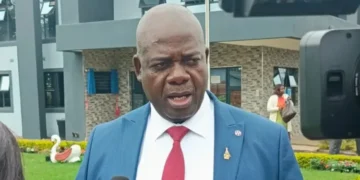
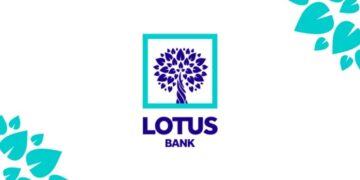
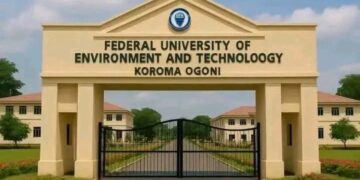
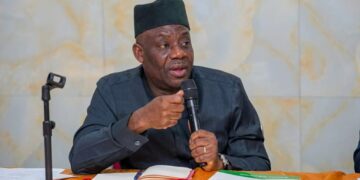
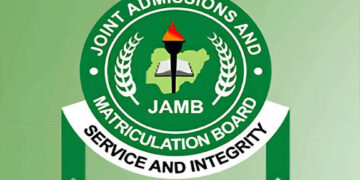




























































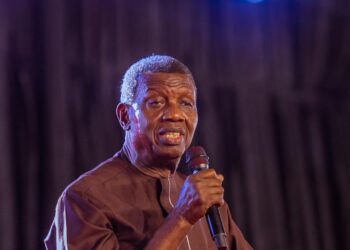
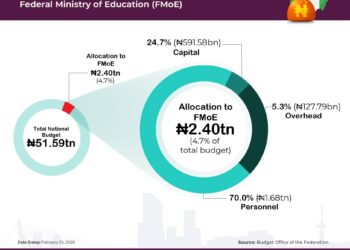
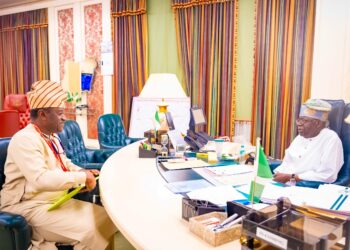
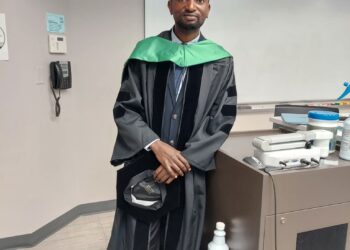
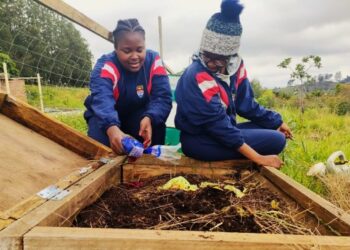
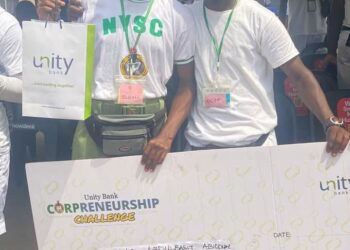










 EduTimes Africa, a product of Education Times Africa, is a magazine publication that aims to lend its support to close the yawning gap in Africa's educational development.
EduTimes Africa, a product of Education Times Africa, is a magazine publication that aims to lend its support to close the yawning gap in Africa's educational development.